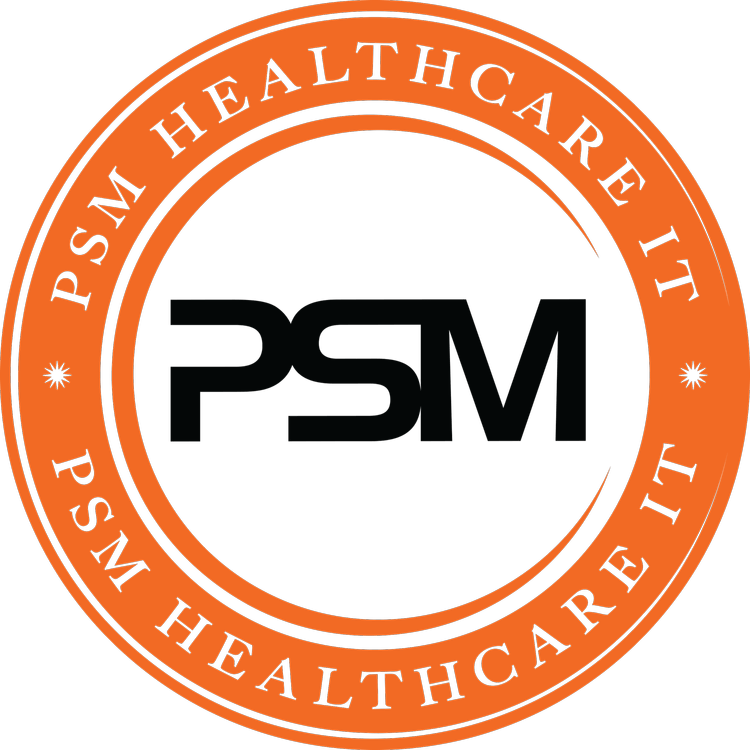Did you know that by 2024, the healthcare industry will witness a significant shift with the introduction of new HIPAA regulations? These changes are set to revolutionize how patient data is handled, impacting healthcare providers, insurers, and business associates alike. With stricter guidelines, last HIPAA privacy rule changes, and enhanced security measures, organizations must gear up to ensure compliance to avoid hefty penalties and safeguard sensitive information. Stay ahead of the curve by understanding these upcoming regulations and preparing your systems and processes accordingly. The evolving landscape of healthcare data protection demands proactive measures to adapt and thrive in this dynamic environment.
Key Takeaways

-
Stay informed about the 2024 HIPAA changes to ensure compliance with the updated regulations.
-
Implement robust compliance procedures within your organization to safeguard patient data and privacy effectively.
-
Embrace interoperability advancements to enhance the seamless exchange of health information across systems.
-
Be aware of the modifications in the Privacy Rule and adapt your practices accordingly to maintain data security.
-
Stay updated on the Security Rule changes to strengthen your organization’s cybersecurity measures and protect sensitive information.
-
Familiarize yourself with the Health Breach Notification Rule to respond promptly and appropriately in case of data breaches.
Overview of 2024 HIPAA Changes
Significant Updates
The new HIPAA regulations for 2024 bring significant changes to data privacy and security in healthcare. These updates focus on strengthening HIPAA compliance and enhancing patient information protection. The timeline for these changes indicates that they will come into effect starting January 1, 2024. Healthcare organizations need to prepare for these modifications to ensure seamless implementation.
The implications of these updates are far-reaching. They will impact how healthcare organizations handle patient data, requiring stricter adherence to HIPAA policies. Patients can expect better protection of their sensitive information under the new regulations. By improving HIPAA privacy, these changes aim to bolster trust between patients and healthcare providers.
Impact on Compliance
The new regulations will have a profound impact on compliance requirements for healthcare providers. Organizations must review and update their existing protocols to align with the revised HIPAA law. Challenges may arise during this transition period, such as the need for additional training and resources to meet the new standards.
Ensuring compliance with the updated regulations demands proactive measures. Healthcare providers should conduct thorough assessments of their current practices and identify areas that require adjustment. Implementing robust training programs and investing in advanced HIPAA vulnerabilities detection tools can help organizations navigate the complexities of the new regulations effectively.
Interoperability Initiative
Interoperability plays a crucial role in facilitating seamless data sharing among healthcare systems. The new HIPAA regulations prioritize interoperability to enhance communication and collaboration within the healthcare industry. By promoting data exchange between different systems, these regulations aim to improve care coordination and patient outcomes.
Enhanced interoperability offers numerous benefits for patient care and data exchange. It enables healthcare providers to access comprehensive patient information promptly, leading to more informed decision-making. Improved data sharing also enhances care continuity, ensuring that patients receive consistent and effective treatment across various healthcare settings.
Privacy Rule Modifications
The proposed modifications to the HIPAA Privacy Rule introduce changes aimed at safeguarding Protected Health Information (PHI) in sensitive situations like substance use disorder and mental illness. These modifications seek to strike a balance between protecting patient privacy and enabling necessary information sharing for effective treatment.
Healthcare providers must understand the rationale behind these proposed changes to adapt their practices accordingly. The modifications emphasize the importance of maintaining patient confidentiality while ensuring that essential information is accessible when needed. By aligning with these modifications, healthcare organizations can uphold patient privacy rights while delivering high-quality care.
Understanding Compliance Procedures
Preparing for Changes
Healthcare organizations can prepare for the new HIPAA regulations by first conducting a thorough review of their current policies and procedures. Identify areas that need updating to align with the upcoming changes. Collaborate with legal experts or consultants to ensure comprehensive compliance. Utilize online resources such as webinars, guides, and toolkits provided by reputable organizations like the Department of Health and Human Services (HHS). These resources offer insights into the regulatory updates and practical advice on implementation.
To facilitate a smooth transition, it is crucial to allocate sufficient time and resources for training and system adjustments. Early preparation allows organizations to address any potential gaps in compliance before the new regulations take effect. By staying informed and proactive, healthcare entities can minimize disruptions and ensure continued adherence to HIPAA requirements.
Compliance Checklist
A comprehensive compliance checklist serves as a valuable tool for healthcare organizations navigating the new HIPAA regulations. The checklist should outline key requirements such as data encryption, access controls, breach response protocols, and risk assessments. Break down the checklist into actionable steps, assigning responsibilities to relevant departments or individuals. Regularly review and update the checklist to reflect any changes in the regulatory landscape.
Conduct regular audits and assessments to evaluate compliance levels and identify areas for improvement. Implement corrective measures promptly to address any non-compliance issues. By maintaining a proactive approach to compliance, organizations can safeguard patient data, uphold trust, and avoid potential penalties associated with HIPAA violations.
Training and Awareness
Training programs play a pivotal role in ensuring staff awareness of the new HIPAA regulations. Develop tailored training sessions that cater to different roles within the organization, addressing specific compliance requirements relevant to each department. Emphasize the importance of data privacy, security best practices, and incident response protocols during training sessions.
Raising awareness among employees about the regulatory changes fosters a culture of accountability and compliance within the organization. Encourage staff participation in ongoing training initiatives and provide regular updates on HIPAA guidelines to reinforce understanding. By fostering a culture of continuous learning and compliance, healthcare organizations can mitigate risks associated with data breaches and enhance overall patient care quality.
Advancing Interoperability
Implications for Compliance
Healthcare organizations must comply with the new HIPAA regulations to avoid severe penalties and consequences. Non-compliance can result in fines, legal actions, and damage to reputation. To mitigate risks, organizations should prioritize training staff, updating policies, and conducting regular audits.
-
Pros:
-
Improved data security
-
Enhanced patient trust
-
-
Cons:
-
Financial penalties
-
Legal repercussions
-
Failing to adhere to the updated rules can lead to significant setbacks for healthcare entities. By fostering a culture of adherence and investing in robust compliance measures, organizations can navigate the regulatory landscape effectively.
Enhancing Data Sharing
The new regulations focus on enhancing data sharing capabilities within the healthcare ecosystem. Improved data sharing facilitates seamless exchange of information among providers, leading to better care coordination and treatment outcomes. Technologies like secure messaging platforms and interoperable systems play a crucial role in enabling efficient data sharing practices.
-
Secure messaging platforms
-
Interoperable systems
Enhanced data sharing not only streamlines processes but also ensures that patients receive comprehensive and timely care. By leveraging innovative technologies, healthcare organizations can overcome barriers to data exchange and deliver more personalized services.
Patient Access Initiatives
Under the new regulations, initiatives are introduced to empower patients by granting them greater access to their health information. Patients have rights to view, download, and transmit their Protected Health Information (PHI). Implementing patient access initiatives involves providing user-friendly portals, educating patients on their rights, and ensuring data security measures are in place.
-
Rights granted to patients:
-
Accessing PHI
-
Controlling health information
-
Modifications in the Privacy Rule
Reproductive Health Information
The new HIPAA regulations for 2024 bring significant changes to strengthen privacy protections for reproductive health information. Healthcare providers must adhere to stricter guidelines when handling this sensitive data. These modifications aim to enhance confidentiality and security for patients seeking reproductive healthcare services.
The implications of these changes are profound for both healthcare providers and patients. Providers need to ensure that they have robust policies and procedures in place to safeguard reproductive health information. Patients can now have increased confidence that their privacy rights will be respected and protected under the new regulations.
Under the new regulations, healthcare providers are required to comply with stringent compliance requirements when handling reproductive health information. This includes implementing multiple security measures to prevent unauthorized access, disclosure, or breaches of this sensitive data. Failure to adhere to these requirements can result in severe penalties for non-compliance.
Disclosures and Uses
The HIPAA privacy rule changes outline permissible disclosures and uses of Protected Health Information (PHI) under the updated regulations. Healthcare providers must ensure that any disclosure of PHI is necessary for treatment, payment, or healthcare operations. Unauthorized disclosures are strictly prohibited under the new rules.
Healthcare providers must meet specific criteria when disclosing PHI for certain purposes, such as treatment coordination or public health activities. By following these criteria, providers can ensure that patient information is shared appropriately and in compliance with HIPAA regulations.
Examples of scenarios where disclosures and uses of PHI are allowed under the updated rules include sharing patient information with other healthcare providers involved in a patient’s care, reporting suspected cases of abuse or neglect, or disclosing PHI for research purposes with patient consent.
Privacy Protections
The new HIPAA regulations introduce enhanced privacy protections to safeguard sensitive health information and patient privacy. These protections include stricter guidelines on data encryption, access controls, and audit trails to monitor who accesses patient information and when.
Healthcare organizations must implement measures such as conducting regular risk assessments, providing ongoing staff training on privacy policies, and ensuring secure electronic communication systems to comply with the strengthened privacy provisions. By prioritizing patient privacy, organizations can build trust with patients and maintain compliance with HIPAA regulations.
Security Rule Update
Enhancements in Security
Healthcare organizations must adhere to new HIPAA regulations to enhance security measures for protecting patient data. These regulations mandate stronger cybersecurity protocols to prevent data breaches and unauthorized access. Organizations should implement encryption for data transmission and storage.
To safeguard patient information, healthcare entities are required to conduct regular security training for employees. Implementing access controls and audit trails can help monitor data access and track any unauthorized activities. Regular security audits are essential to ensure compliance with the updated Security Rule.
-
Encryption: Secure data transmission and storage
-
Access Controls: Monitor and control data access
-
Audit Trails: Track unauthorized activities
Risk Management
Effective risk management is crucial in ensuring compliance with the new HIPAA regulations. Conducting regular risk assessments enables healthcare organizations to identify vulnerabilities and mitigate compliance risks effectively. Developing a comprehensive risk management framework is essential for maintaining regulatory compliance.
Healthcare entities should establish incident response plans to address security breaches promptly. Regularly updating these plans ensures readiness in case of any data breaches or cyberattacks. Organizations should prioritize vendor management to ensure third-party compliance with the Security Rule.
-
Conduct regular risk assessments
-
Develop incident response plans
-
Prioritize vendor management
Health Breach Notification Rule
Notification Requirements
The new HIPAA breach notification rule mandates strict guidelines for notifying individuals and authorities about data breaches. Organizations must promptly inform affected individuals and regulatory bodies upon discovering a breach. Establishing clear notification protocols is crucial to comply with these regulations effectively.
Organizations are required to outline detailed processes for notifying individuals and regulatory authorities in the event of a breach. Timely communication is essential to ensure affected individuals can take necessary precautions. By setting up efficient notification protocols, organizations can swiftly address breaches and mitigate potential damages.
Reporting Time Frames
Under the new regulations, specific time frames are set for reporting data breaches and privacy incidents. Delayed reporting can have severe consequences, including penalties for non-compliance. It is imperative for organizations to adhere to the designated reporting time frames to avoid legal repercussions.
Failure to report breaches within the stipulated time frames can result in significant penalties and damage to an organization’s reputation. Streamlining reporting processes is essential to meet the regulatory requirements promptly. By implementing efficient reporting mechanisms, organizations can uphold compliance and protect sensitive data.
FAQs on New Regulations
Common Questions
Healthcare organizations often have questions about the new regulations set to be implemented in 2024. One common query is how these changes will impact patient records regulations. Organizations are concerned about ensuring compliance with the updated rules and maintaining data security. Understanding the nuances of these regulations is crucial for safeguarding patient information and avoiding penalties.
To address compliance concerns, healthcare providers must stay informed about the new regulations and make necessary adjustments to their processes. By implementing robust data protection measures, organizations can mitigate the risk of breaches and unauthorized access to patient records. Training staff on the updated rules and guidelines is essential for maintaining HIPAA compliance and safeguarding sensitive information.
-
Pros:
-
Enhanced protection for patient data
-
Improved transparency in data sharing practices
-
-
Cons:
-
Increased administrative burden for healthcare organizations
-
Potential costs associated with updating systems and training staff
-
Expert Answers
Experts in the healthcare industry emphasize the significance of adapting to the new HIPAA regulations. Industry professionals stress the importance of prioritizing patient privacy and confidentiality in light of these regulatory changes. By leveraging technology solutions and encryption tools, organizations can enhance data security and ensure compliance with the updated rules.
Industry experts recommend conducting regular audits of data handling processes to identify vulnerabilities and areas for improvement. Collaborating with cybersecurity specialists can help healthcare organizations strengthen their defenses against potential data breaches. Emphasizing a culture of compliance within the organization is key to ensuring that all staff members understand their roles in protecting patient information.
-
Implement robust data protection measures.
-
Train staff on updated rules and guidelines.
-
Conduct regular audits of data handling processes.
-
Collaborate with cybersecurity specialists.
-
Emphasize a culture of compliance within the organization.
Preparing for Future Changes
Anticipating Amendments
Future amendments or revisions to the new HIPAA regulations are a common occurrence in the healthcare industry. These changes are essential to adapt to advancements in technology, evolving patient needs, and emerging security threats. Healthcare organizations must remain agile and flexible to comply with these regulatory updates.
Factors such as technological innovations, data breaches, public health emergencies, and shifts in healthcare delivery models can drive amendments to the HIPAA regulations. For instance, the increasing use of telemedicine and wearable health devices may necessitate updates to ensure patient data privacy and security. Healthcare organizations need to monitor these trends closely to anticipate potential regulatory changes.
Staying informed and proactive is crucial for healthcare organizations to navigate the complex regulatory landscape effectively. To prepare for future amendments, organizations should establish robust compliance programs, conduct regular risk assessments, and engage with industry experts and legal counsel. By proactively identifying areas of non-compliance and addressing them promptly, organizations can mitigate risks associated with regulatory changes.
Staying Informed
Staying informed about ongoing developments in healthcare regulations, including HIPAA, is paramount for healthcare professionals. Regularly monitoring updates from the Department of Health and Human Services (HHS) and other regulatory bodies can help professionals stay ahead of regulatory changes. Subscribing to industry newsletters, attending webinars, and participating in conferences are effective ways to stay informed.
Healthcare professionals can also leverage online resources such as the HHS website, professional associations’ platforms, and reputable healthcare publications to access up-to-date information on regulatory changes. Engaging in continuous learning through online courses, workshops, and certifications can enhance professionals’ understanding of compliance requirements and best practices. By investing in their professional development, healthcare professionals can adapt to regulatory changes more effectively.
-
Pros:
-
Enables proactive compliance with regulatory changes
-
Enhances organizational readiness for future amendments
-
-
Cons:
-
Requires dedicated time and resources for staying informed
-
Final Remarks
In navigating the upcoming 2024 HIPAA changes, you’ve gained insights into compliance procedures, interoperability advancements, privacy rule modifications, security updates, breach notifications, and more. Staying informed and proactive is key to ensuring your organization’s adherence to these new regulations. Prepare your team, update protocols, and stay vigilant to safeguard sensitive health information effectively.
As the healthcare landscape evolves rapidly, embracing these changes is crucial for maintaining data security and patient privacy. By understanding and implementing the new HIPAA regulations, you not only protect your organization but also uphold trust with patients. Stay proactive, seek further guidance as needed, and adapt swiftly to the evolving healthcare environment.
Frequently Asked Questions
What are the key changes in the 2024 HIPAA regulations?
The 2024 HIPAA regulations introduce modifications in the Privacy Rule, Security Rule updates, advancements in interoperability, and enhancements in health breach notification procedures.
How can organizations prepare for the future changes in HIPAA regulations?
Organizations can prepare by staying informed about regulatory updates, conducting regular compliance audits, training staff on new requirements, updating policies and procedures, and implementing robust data security measures.
What is the significance of complying with the new HIPAA regulations?
Compliance ensures the protection of patients’ sensitive information, reduces the risk of data breaches and penalties, fosters trust between healthcare providers and patients, and promotes a culture of data security within organizations.
How do the 2024 HIPAA changes impact healthcare data interoperability?
The changes aim to enhance healthcare data interoperability by promoting seamless data exchange between different systems and stakeholders, improving care coordination, facilitating research, and enabling patients to have better access to their health information.
Will the modifications in the Privacy Rule, hipaa revisions, hipaa updates, hipaa breaches, and hipaa violations affect how patient data is handled by healthcare providers?
Yes, the modifications will impact how patient data is collected, used, disclosed, and protected by healthcare providers. It emphasizes transparency in data practices, strengthens individuals’ rights over their health information, and sets stricter standards for data security and privacy.





